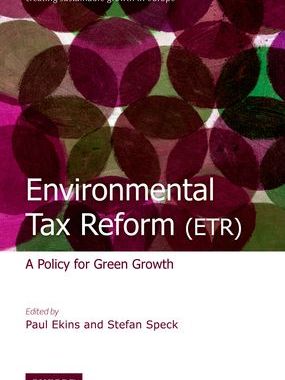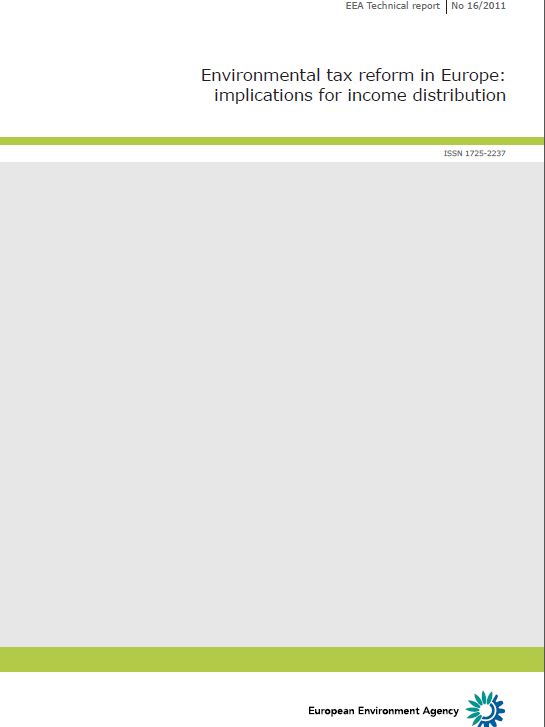
Implications of Environmental Tax Reform in Europe for Household Distribution
- Publication
- Citation
Blobel, D., Gerdes, H., Pollitt, H., Barton, J., Drosdowski, T., Lutz, C., Wolter, M.I. & Ekins, P. (2011): Implications of ETR in Europe for Household Distribution. In: Ekins, P. & Speck, S. (eds.): Environmental Tax Reform (ETR) – A Policy for Green Growth. Oxford/New York: Oxford University Press, pp. 236-290.
In a literature review, Ecologic Institute examined the effects of environmental tax reforms on the distribution of wealth among different population groups. The review, which contributed to a study commissioned by the European Environment Agency, was included in a book publication offering in-depth assessments of experiences with environmental tax reforms and the benefits such a reform could bring about when implemented at a larger scale throughout Europe.
Environmental tax reform (ETR) is commonly understood as a package of measures combining an increase of taxes on energy or natural resources with a revenue-redistribution component. The latter may consist of alleviating the tax burden in other areas and/or targeted governmental spending to offset the income effects created by environmental taxes. As a consequence, ETR can produce at least four different types of impacts, each of which may be distributed unequally across society: the price increase for the taxed goods; the impact of revenue recycling; the broader economic impacts of ETR; and its environmental effects.
The contribution from Ecologic Institute reviews evidence on the distributional impacts of ETR along these different pathways and suggests a number of conclusions regarding adequate policy design. It is followed by the results of modelling studies analysing the distributional impacts of a comprehensive ETR in all countries of the European Union, as well as a detailed modelling case study for Germany. Results demonstrate that ETR is an effective means to reach environmental objectives while creating an overall positive income and employment effect. Nevertheless, lower income groups may experience disproportionately smaller income gains or even net losses. Even though these regressive effects may be small in absolute terms, adequate ways of compensation should be found in order to build political acceptance.
The analysis of distributional impacts, which resulted from a project commissioned by the European Environmental Agency (EEA), forms part of a book presenting findings that are essentially derived from the PETRE ("Resource Productivity, Environmental Tax Reform and Sustainable Growth in Europe") project funded by the Anglo-German Foundation.






